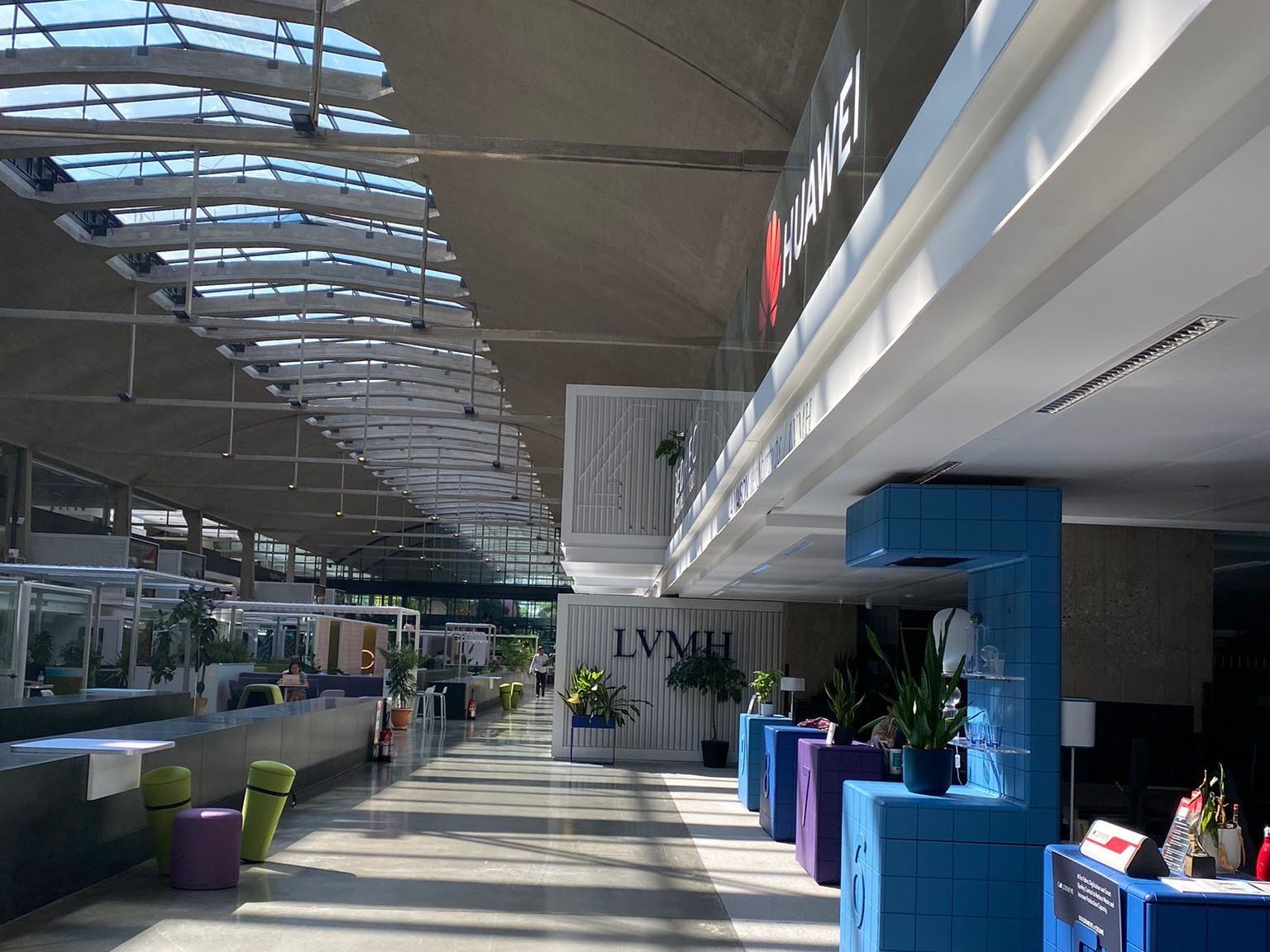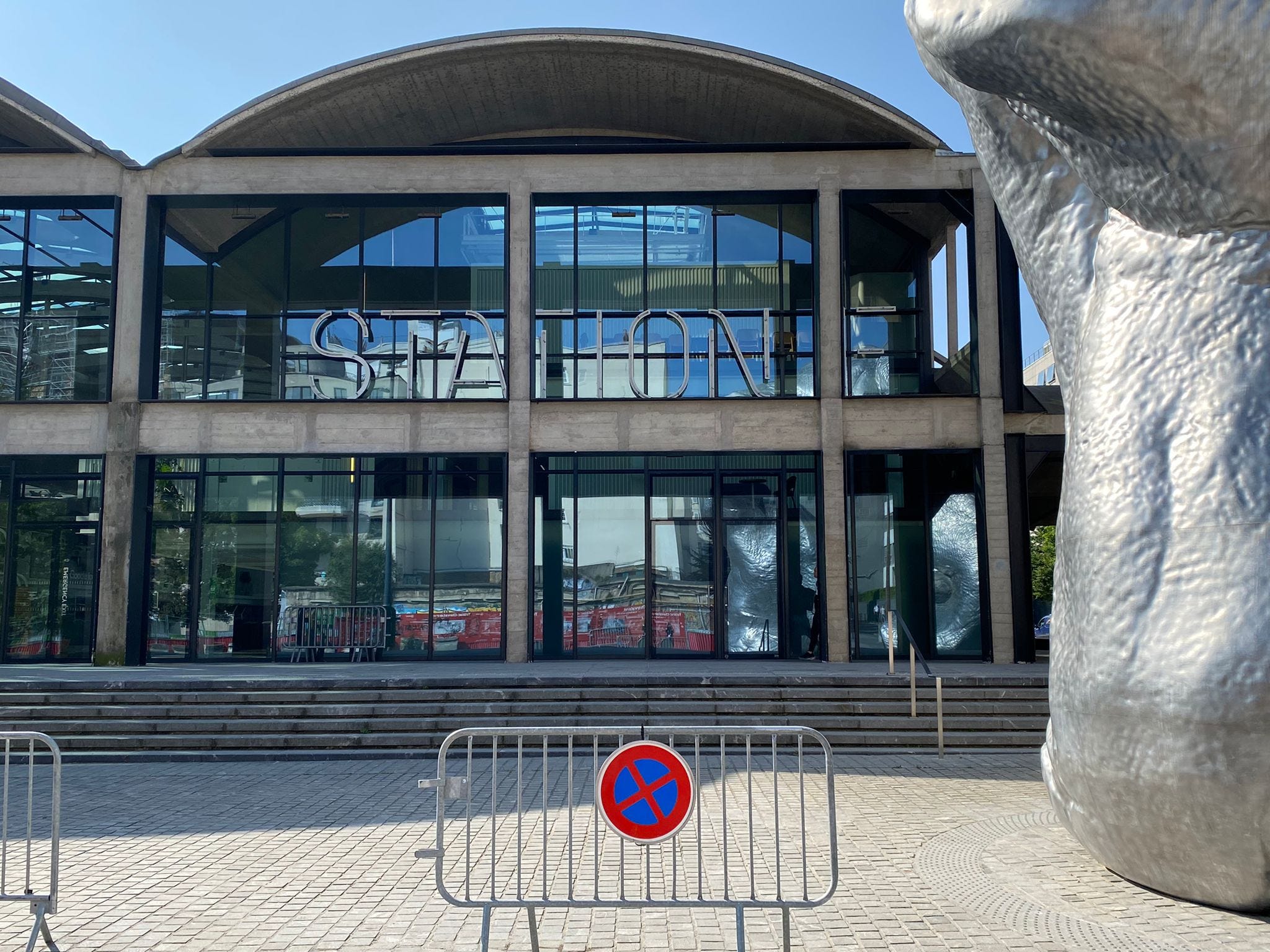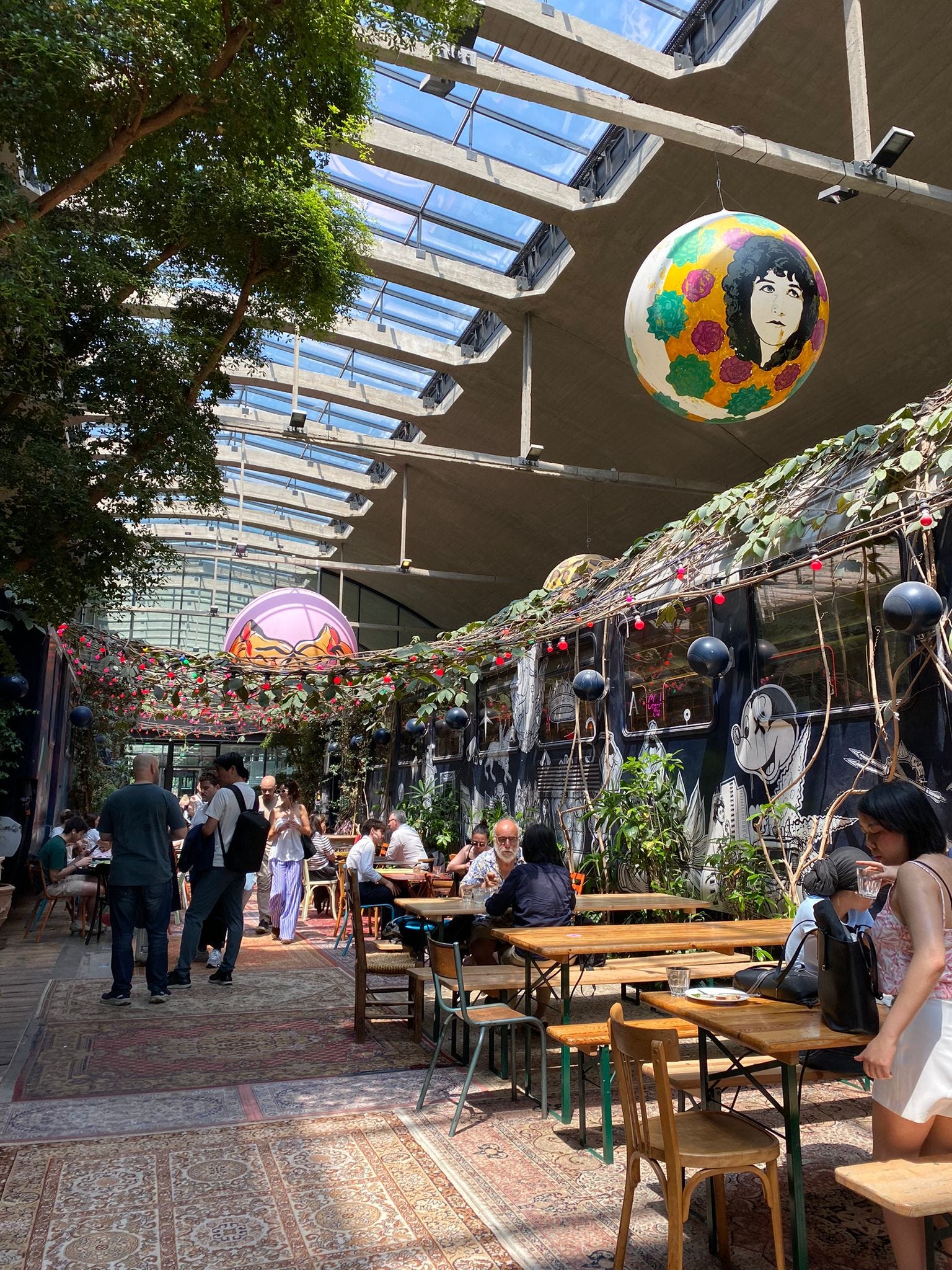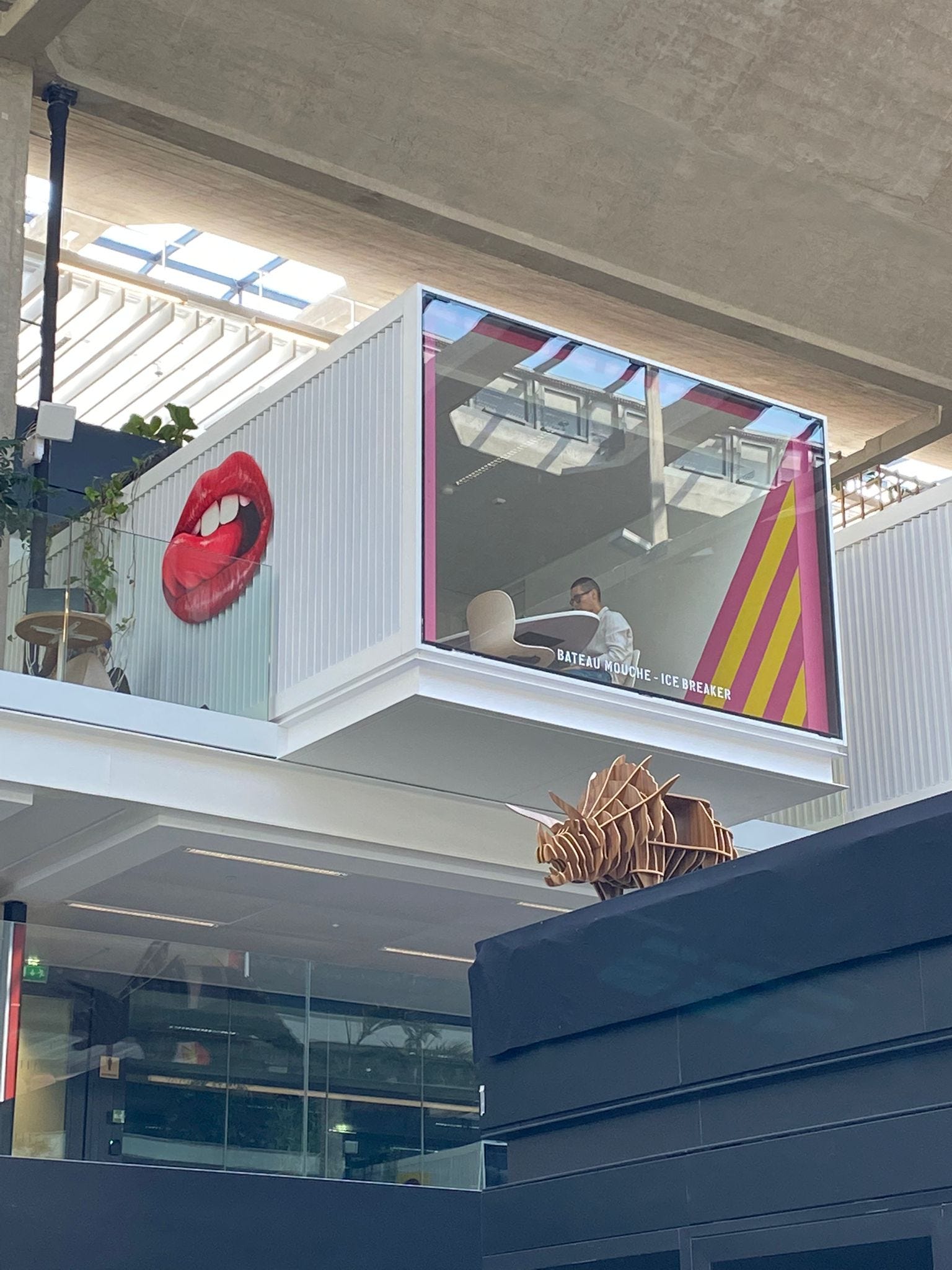
Riddhi Kanetkar / Business Insider
In Paris’s balmy thirteenth district, an airy rail depot that’s been converted into a startup incubator is now the epicenter of France’s tech boom.
Walking through Station F, it’s hard not to see how the 366,000-square-foot space has been influenced by Silicon Valley, with its amenities like a huge cafeteria and an under-construction yoga studio that are reminiscent of Big Tech campuses.
But Station F’s director, Roxanne Varza, told Business Insider that it is not trying to become an American incubator. “We’ve been inspired by a lot of players, and we look up to Y Combinator. But we’re not trying to be Silicon Valley,” she said.
Now, politics is helping drive international founders here, including Americans, Varza told BI during a recent visit.

Riddhi Kanetkar / Business Insider.
Trump 2.0 is driving talent migration
The election of Donald Trump and Brexit were among the biggest catalysts driving international founders to Station F, Varza told BI. After France, the US and UK are the most represented nationalities on campus, which houses entrepreneurs from 70 nationalities, Varza said.
At times of political volatility, the campus has been a magnet for founders seeking a global outlook and a supply of talent. Trump 2.0 — and its aftermath, including the announcement of Stargate and DeepSeek — galvanized European founders to step up, Varza said.
The US tech ecosystem secured $209 billion in VC funding in 2024, about 17 times more than France. But Paris is catching up to its global counterparts. In 2025, technology research platform Dealroom billed the city as Europe’s new tech champion, overtaking London’s mantle. From 2017 to 2024, the combined enterprise value of startups based in Paris increased 5.3 times, more than any other European tech hub.
Climate tech founders in particular have been coming from the US to Station F amid the Trump administration cutting incentives for green industries in the US, Varza said.
Materials discovery startup Entalpic, which launched in 2024, has had a flurry of US applicants vying for jobs at the company since the start of the year, its cofounder, Alexandre Duval, told BI. Duval had planned to move his startup out of Station F once it reached 20 employees, but decided to stay. “We have so many resources here: meeting rooms, onboarding, events, opportunities to meet people. It’s good,” he said.
Competitive equity
Station F, the handiwork of French billionaire Xavier Neil, launched in 2017 to drive entrepreneurship in France’s tech ecosystem.
The Station F team accepts around 40 startups every month. In addition to access to the incubator’s coworking space, startups get resources and mentorship, including from government officials and Big Tech companies, such as Meta and Microsoft, that have offices at Station F.
Station F’s flagship Founders Program offers founders workshops and masterclasses. In return, the incubator takes 1% equity — a more favourable figure than the 6% taken by Y Combinator. The incubator also aims to write checks of $50,000 to $100,000 to around 20 upstarts each year.

Riddhi Kanetkar / Business Insider.
The result is a hubbub of innovators collaborating and ideating all days of the week — a far cry from how some corners of LinkedIn see Europe’s tech ecosystem as the butt of the joke for its supposed lax work culture compared to Silicon Valley.
Station F has welcomed everyone from the prime minister of Ethiopia to the CEO of Cisco — and the morning I arrive, the CEO of GitHub is scheduled to speak for a Q&A as part of VivaTech, France’s flagship tech event that attracted speakers such as Nvidia’s Jensen Huang. “The No. 1 reason people come here is for the access to people,” Varza added.
A hotbed for AI startups
Like many of its international counterparts, Station F has doubled down on the AI boom.
Government initiatives under France’s president Emmanuel Macron, as well as generous financing from the country’s national bank, Bpifrance, have galvanized the region’s AI startups.
In 2023, French AI startups raised $1.9 billion, per PitchBook data. In 2024, this figure rose by more than 50% to $2.98 billion. Notable rounds included Mistral’s $600 million raise in June 2024 and H’s mammoth $220 million seed round in May 2024.
So far this year, French AI companies have raised $1.7 billion in VC funding, and Macron announced in February an additional $112 billion in private sector funding earmarked for the country’s AI ecosystem.

Riddhi Kanetkar / Business Insider
High-profile investors such as Andreessen Horowitz, General Catalyst, and Lightspeed Ventures have flocked to back prolific AI startups founded in France, such as Mistral, Dust, and Poolside.
Open-source AI company Hugging Face, now valued at $4.5 billion, was once incubated in Station F. Now, Varza said, around 40% of France’s AI startups are spinning out of the program.
In 2024, 34 out of 40 of the top startups touted by Station F — its “Future 40” — were AI companies.
“Station F is one of the biggest AI communities in Europe,” Varza says. “It’s also an entry point for so many tier one investors coming to Europe — and we’re seeing more Series A and B rounds too.”
Beyond helping AI startups raise financing, Station F also participates in regulatory debates about France’s tech ecosystem, Varza added. “Right now, the government is talking about how we can fiscally incentivise AI companies and push creation. We’re in those discussions very actively.”
A collegial culture
I was keen to speak to AI and climate founders, and within two minutes, Varza had grabbed two people for me to speak to.
It was a reflection of how Station F operates: touting collaboration over competition. Despite the vast space, I saw founders from different startups huddled together in various pockets of the station, congregating for in-house events such as Q&As, as well as the bustling restaurant space.

Riddhi Kanetkar / Business Insider
“We saw incredible things happen when people were working in close spaces,” Varza said. “You see everything from VR and AI companies collaborating — and even companies winding down and neighbouring teams acquiring them.”
She recalled how one startup in the incubator wanted to pivot and copied a neighbouring company’s idea. “It’s our only copycat story, but they both ended up being pretty successful,” she added.
Station F is working on initiatives with Japan and the Gulf region, Varza said — but what excites her most is the opportunity to take what they’ve built in Paris and “build those bridges” internationally across Europe.
The post ‘We’re not trying to be Silicon Valley’: Inside Station F, where Paris is incubating the next tech and AI juggernauts appeared first on Business Insider.




